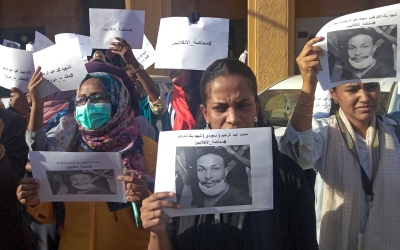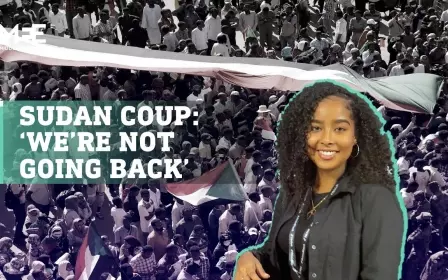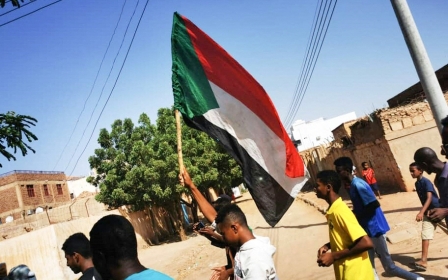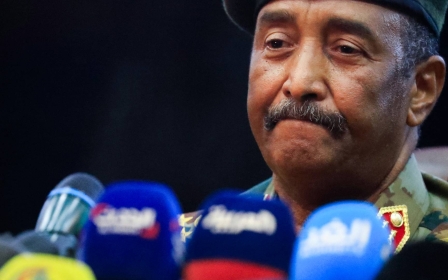Sudan coup: Talks over crisis hit 'semi-deadlock', say sources from ousted government
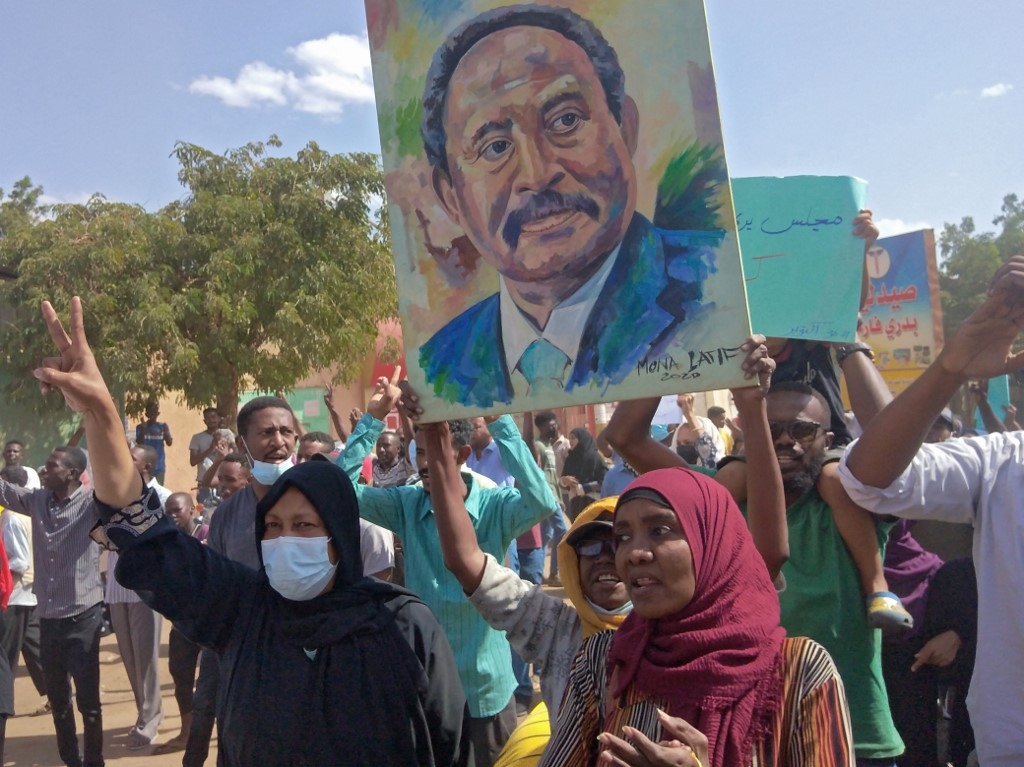
Talks to resolve Sudan's political crisis after last month's coup have hit "semi-deadlock" because the military has refused to return to a path of democratic transition, two sources from the ousted government said on Saturday.
The sources told Reuters that the military had tightened restrictions on ousted Prime Minister Abdalla Hamdok, who was placed under house arrest during the 25 October takeover when his government was dissolved.
The new restrictions further limited his ability to hold meetings or make political contacts, they added.
Sudan's military chief, Abdel Fattah al-Burhan, has said the army intervened because of political turmoil and the risk of civil war. He says the military remains committed to the transition and to elections to be held in 2023.
After arresting top civilians including several cabinet ministers, the military has taken steps that appear aimed at consolidating its control. Late on Saturday, Sudanese state TV said the directors of five state banks had been replaced, a day after it was announced that the boards of state companies had been dissolved.
Mediation efforts involving the United Nations have been seeking to find a way for Hamdok to be brought back as prime minister of a purely technocratic government.
Hamdok has demanded preconditions that include the release of top civilians detained during the coup and a return to a transition towards democracy that began after the overthrow of long-term autocrat Omar al-Bashir in 2019.
Pro-democracy groups are trying to reverse the coup with a series of mass rallies and neighbourhood demonstrations. Some small protests took place on Saturday evening, and a new round of civil disobedience and strikes are planned across Sudan for Sunday and Monday. Many in the protest movement reject any role for the military and call for full civilian rule.
The Sudanese Professionals Association (SPA), which led protests in the uprising that toppled Bashir, announced a new platform on Saturday including a demand for the formation of a purely civilian transitional authority over a four year period.
It also called for the restructuring of the military and the dissolution of the powerful paramilitary Rapid Support Forces (RSF), whose leader was Burhan's deputy in the military-civilian ruling council before the coup.
Opposition arrests
On Thursday, three members of a leading Sudanese opposition party were arrested shortly after meeting with the UN's Special Representative for Sudan.
Taha Osman Isahaq, Sharif Mohamed Osman and Hamza Farouk, members of the Central Council of the Forces of Freedom and Change (FFC), were arrested near the headquarters of the United Nations Integrated Transition Assistance Mission in Sudan (Unitams) in Khartoum.
In a statement, Special Representative and Unitams chief Volker Perthes condemned the arrests and said the move "nullifies" the release of four previously imprisoned ministers on Thursday.
"These arrests which took place after a meeting on our premises undermine our good office's role," read the statement.
"These detentions hinder efforts to restore stability and a return to the path of democratic transition in Sudan and nullifies [sic] the impact of the release of four of the detained ministers yesterday."
On Thursday, Burhan ordered the release of four detained civilian ministers, Hashem Hassabalrasoul, Ali Geddo, Hamza Baloul and Youssef Adam, as international pressure continues to mount on the military leader to return to civilian rule.
'Deeply disturbing'
According to the UN, the aftermath of the coup has left at least 13 civilians dead and more than 300 injured.
During a special session of the UN Human Rights Council on Friday, its chief Michelle Bachelet said the takeover was "deeply disturbing" and it was important that diplomats in Geneva "take appropriate action".
Bachelet said those detained since the coup, including Hamdok, were being held "incommunicado, with no access to lawyers or their relatives".
'All those arbitrarily detained should be released, with a view to instituting dialogue and return to civilian rule'
- UN chief Michelle Bachelet
"All those arbitrarily detained should be released, with a view to instituting dialogue and return to civilian rule," she said.
Also on Thursday, US Secretary of State Antony Blinken spoke with Burhan and reportedly called for the "immediate restoration of the civilian-led government".
Critics of Burhan accuse the army of fomenting unrest before the military takeover, which they say made the risk of civil conflict more likely and derailed a transition that offered an opportunity for Sudan to exit from decades of isolation and internal wars.
Sudan has since August 2019 been ruled by a joint civilian-military Sovereign Council as part of the now derailed transition to full civilian rule.
Burhan, a veteran general who served under Bashir's three-decades-long rule, insisted the army takeover was "not a coup" but a move "to rectify the course of the transition".
Middle East Eye delivers independent and unrivalled coverage and analysis of the Middle East, North Africa and beyond. To learn more about republishing this content and the associated fees, please fill out this form. More about MEE can be found here.


